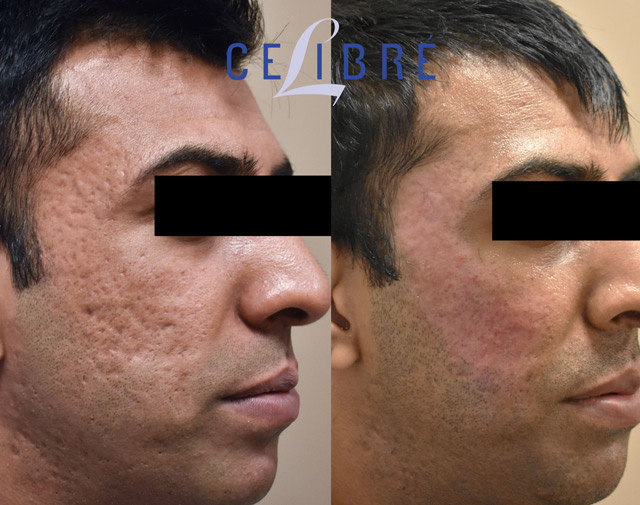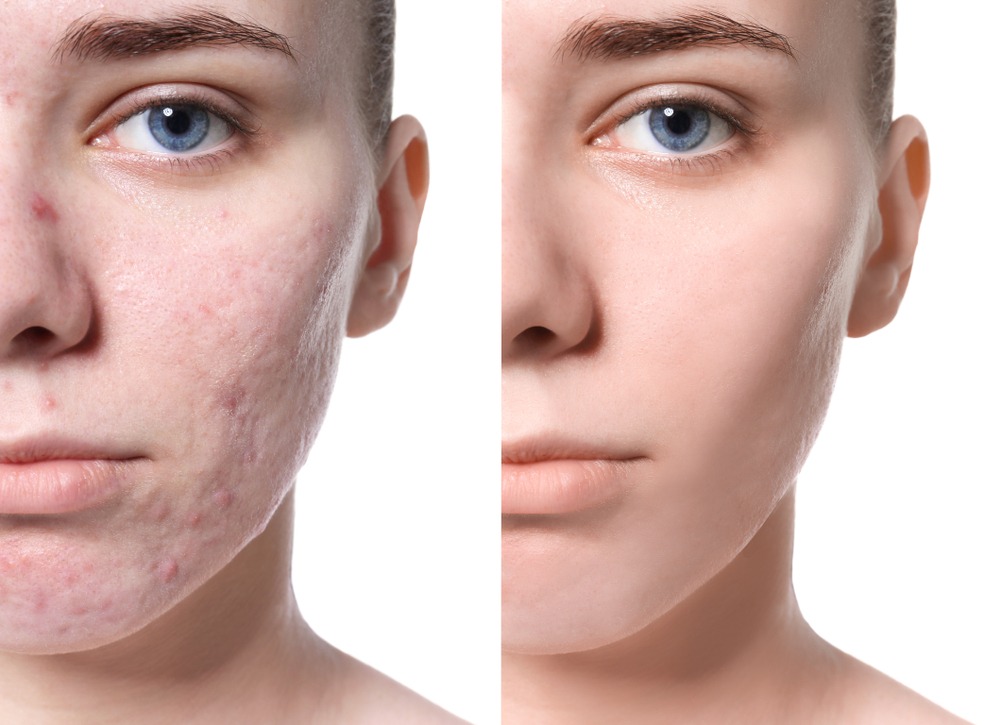Skin Rejuvenation Treatments: Rejuvenate Your Skin and Reduce Acne Scars
Wiki Article
Understanding the Various Skin Problems and Efficient Therapy Choices for Acne Marks
Acne marks represent a complex interplay of skin conditions that considerably influence individuals' self-worth and total skin health and wellness. Comprehending the distinctive sorts of acne scars-- hypertrophic and atrophic-- together with their underlying reasons, is crucial for establishing reliable therapy approaches. Different restorative options exist, varying from innovative dermatological procedures to natural remedies. However, the effectiveness of these treatments frequently rests on personalized evaluations by qualified professionals. As we discover the landscape of acne mark monitoring, it comes to be apparent that the trip towards more clear skin might entail greater than just topical services.Kinds Of Acne Marks

On the other hand, hypertrophic marks arise from an overflow of collagen throughout the recovery procedure, resulting in increased locations on the skin. These scars are typically strong and can differ in color, in some cases showing up red or darker than the surrounding skin.
Understanding these kinds of acne marks is critical for creating an effective therapy plan - acne scars. Choices may consist of chemical peels, laser therapy, microneedling, or dermal fillers, customized to the specific mark type. A detailed examination with a dermatologist can aid figure out the most proper treatment, taking into consideration the person's skin kind, scar extent, and general skin wellness
Reasons For Acne Scarring
Marking happens as an outcome of the body's natural recovery response to inflammation and injury triggered by acne sores. When acne types, it triggers an inflammatory feedback, resulting in the launch of numerous cytokines and development variables that advertise recovery. Nevertheless, this process can sometimes bring about too much cells development or insufficient repair work, causing marks.The key root causes of acne scarring consist of the extent of the acne itself, period of the sores, and specific skin kinds. Serious inflammatory acne, such as nodules and cysts, is most likely to lead to scarring as a result of deeper tissue damages. In addition, improper handling of acne lesions, such as selecting or pressing, can intensify cells injury and swelling, enhancing the possibility of scarring.
Hereditary predisposition additionally plays a considerable role; people with a family members background of scarring are at a greater risk. Moreover, skin kind and color can affect mark formation, as darker skin tones might experience post-inflammatory hyperpigmentation, while lighter skin might develop atrophic scars.
Eventually, comprehending these causes is important in taking care of acne and mitigating the potential for scarring.

Treatment Alternatives for Scarring
Efficient therapy alternatives for acne scarring differ depending on the type and intensity of the scars. Normally categorized right into atrophic, hypertrophic, and keloid marks, these problems need tailored strategies for optimal results.
For atrophic scars, which are characterized by a loss of tissue, therapies such as chemical peels, microdermabrasion, and laser therapy are commonly utilized. These approaches advertise skin renewal and promote collagen manufacturing, therefore improving skin appearance. Subcision, a minimally intrusive treatment, can likewise be reliable by breaking up coarse bands below the skin.
Hypertrophic and keloid marks can be extra challenging to treat. Options consist of corticosteroid injections to lower swelling and flatten the marks. In many cases, cryotherapy or laser treatment might be recommended to reduce their appearance.
Surgical alternatives are offered for serious scarring, where excision or skin grafting may be essential. It's essential for people to seek advice from a skin specialist to examine their specific scar type and discuss the most suitable treatment strategy. Integrating several therapies usually produces the most effective results, guaranteeing that each patient's special skin problem is dealt with efficiently.
Natural Home Remedy and All-natural Solutions
Natural solutions and home treatments can offer an obtainable strategy for individuals looking for to enhance the look of acne scars (acne scars treatment). Various components located in the home kitchen area have demonstrated possible advantages in enhancing skin texture and promoting healing
One more reliable option is lemon juice, which works as a natural exfoliant and can lighten hyperpigmentation. However, it needs to be used meticulously, go right here as it may create photosensitivity. Oat meal masks are likewise helpful; their mild peeling can assist get rid of dead skin cells while calming irritation.
Crucial oils, such as tea tree oil and lavender oil, can further sustain mark healing as a result of their antimicrobial residential properties. It is critical to execute a patch examination before using any solution to guarantee there are no damaging responses. These natural solutions can be a complementary technique in the journey to lessen acne scars.
Avoiding Future Scarring
Taking on a proactive strategy to skin care can significantly reduce the threat of developing future acne scars. One of the key approaches is to take care of acne effectively as it arises. This includes making use of non-comedogenic skincare products and medications recommended web link by skin doctors that target acne without irritating the skin. Normal cleansing, exfoliation, and hydration can aid maintain skin health and prevent clogged up pores.Additionally, staying clear of the temptation to choose or press acne sores is critical, as this can bring about inflammation and succeeding scarring. Rather, individuals should focus on applying topical treatments that promote recovery and decrease inflammation. Components such as salicylic acid, benzoyl peroxide, and retinoids are recognized for their efficiency in managing acne and lessening marks.
Sunlight security is another essential part; exposure to UV rays can darken scars and restrain recovery. For that reason, using a broad-spectrum sunscreen daily can reduce these effects - acne treatment for sensitive skin.
Lastly, keeping a healthy diet rich in antioxidants and staying hydrated supports skin regeneration. By applying these preventative actions, people can substantially reduce their risk of future scarring and promote general skin wellness.
Conclusion
In conclusion, an extensive understanding of acne scars, incorporating both hypertrophic and atrophic kinds, is crucial for reliable therapy methods. Examination with a skin doctor continues to be vital to create tailored methods that think about private skin types and scar intensity, eventually improving the effectiveness of scar monitoring techniques.Acne scars stand for an intricate interplay of skin problems that substantially influence individuals' self-confidence and total skin health. The two primary groups of acne scars are atrophic and hypertrophic scars. These marks are further identified into 3 subtypes: ice pick scars, which are slim find and deep; boxcar marks, which are wider and have distinct edges; and rolling scars, which create a wave-like appearance due to unequal skin texture.
A comprehensive appointment with a skin doctor can assist establish the most ideal treatment, taking into account the individual's skin kind, scar intensity, and total skin health.
Consultation with a dermatologist continues to be critical to develop customized techniques that think about specific skin types and scar severity, ultimately improving the effectiveness of scar administration methods.
Report this wiki page